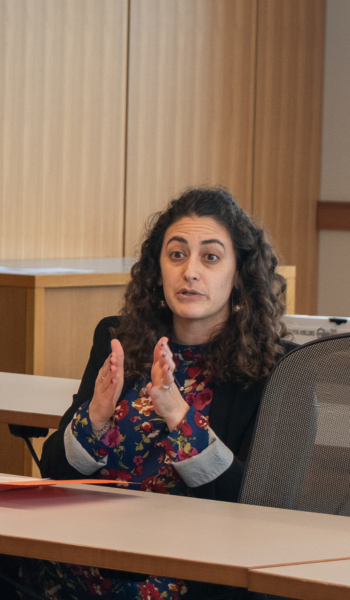
Constance A. Browne
Clinical Professor of Law
BA with distinction, University of Maine
JD cum laude, Boston College
Biography
Constance Browne came to Boston University School of Law in 1982 as an instructor in the First-Year Writing Program and joined the full-time faculty of the clinical programs in 1989. As an associate professor in the Civil Litigation & Justice Program, she supervises students who represent clients in special education, unemployment, divorce, disability and housing cases. She also teaches courses in lawyering skills, helping students to develop and polish their interviewing, counseling, negotiating and trial advocacy abilities. In addition to teaching in the clinical program, Professor Browne offers an advanced writing and editing seminar and a seminar in trial advocacy. She helped initiate the Student Trial Team Program and served as a faculty advisor for the School of Law’s Public Interest Law Journal from the publication’s inception until 1995.
Before coming to Boston University, Professor Browne was in private civil litigation practice for seven years. Her publications include “Absolute Veterans’ Preference in Public Employment: Personnel Administrator of Massachusetts et al. v. Feeney,” and “Title VII and the Equal Pay Act: Gunther v. County of Washington,” both for the Boston College Law Review.
- Profile Types
- Faculty, Full-Time Faculty, Legal Writing, and Professors & Clinical Instructors
- Areas of Interest
- Civil Litigation, Legal Writing & Research, and Trial Advocacy
Publications
Scroll left to right to view all publications
-
Constance A. Browne, A Tribute to Robert (“Bob”) G. Burdick: A Man of Vision and Light 101 Boston University Law Review (2021)
Scholarly Commons -
Constance A. Browne, The Lawyering Lab: 1L Curriculum Reform, Building Consensus for Experiential Education, and Faculty Integration, in Experiential Education in the Law School Curriculum (Emily Grant, Sandra Simpson & Kelly Terry,2017)
Scholarly Commons -
Constance A. Browne, Teaching Professional Responsibility in an Experiential Way, in Experiential Education in the Law School Curriculum (Emily Grant, Sandra Simpson & Kelly Terry,2017)
Scholarly Commons
Stories from The Record
Activities & Engagements
No upcoming activities or engagements.
